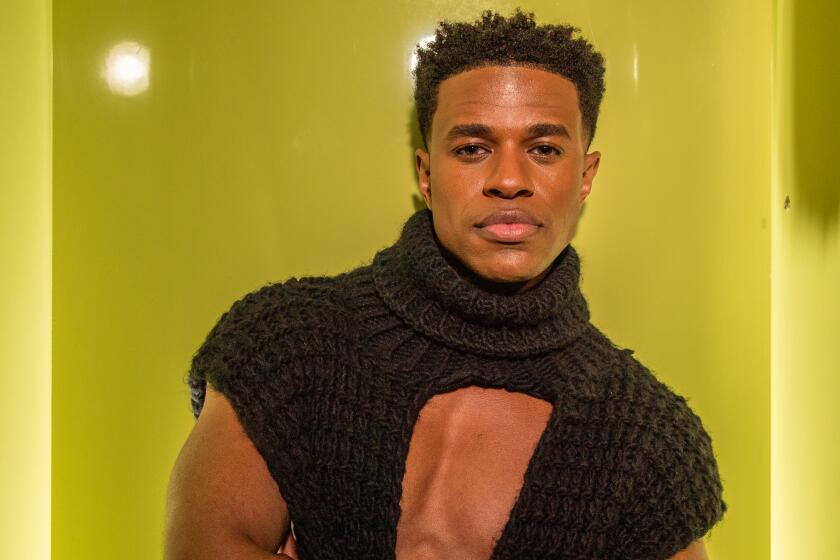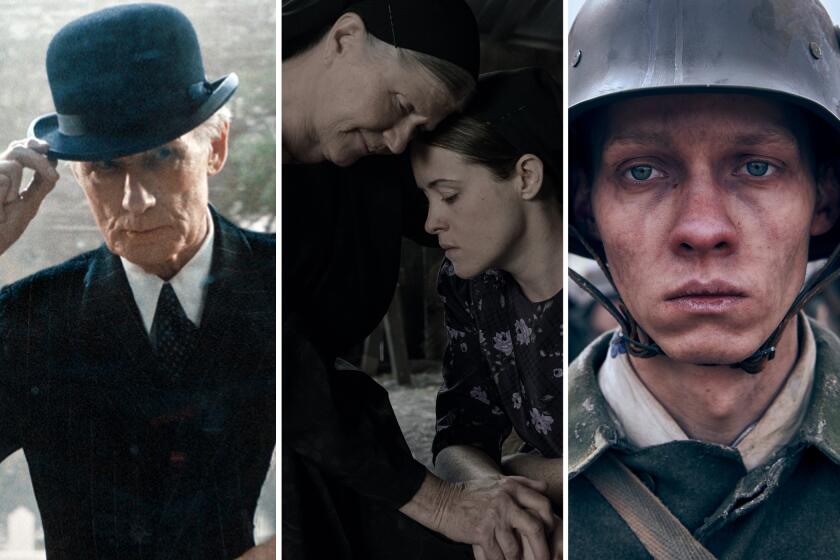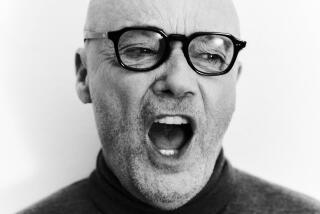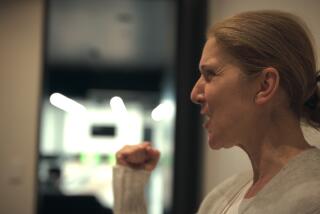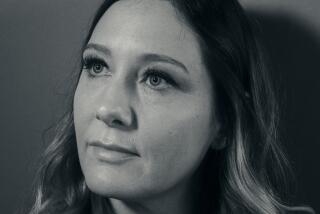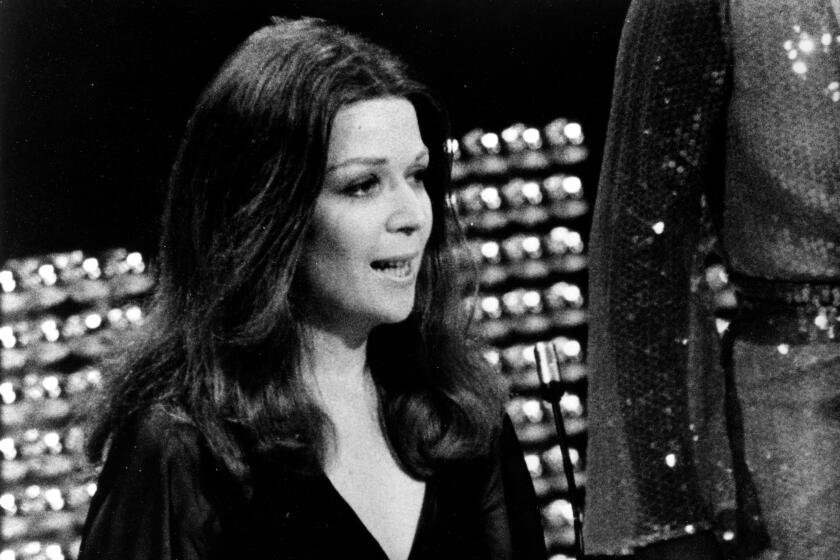Trusting her director’s confidence, Gabrielle Union goes against her own grain
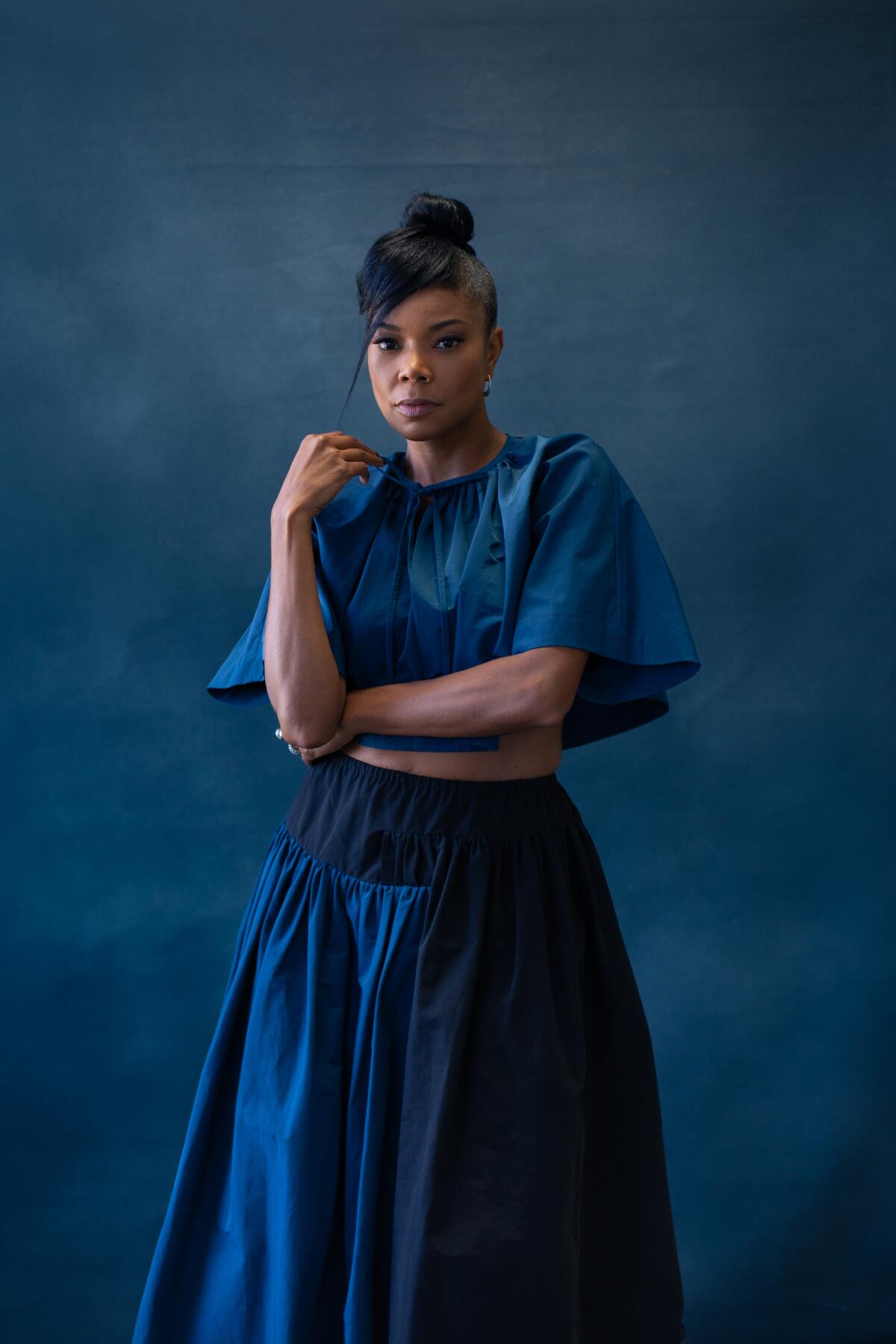
When Gabrielle Union first read the script for Elegance Bratton’s moving, quasi-autobiographical “The Inspection,” about his experiences as a gay Marine, she was instantly ready to sign on as executive producer. But accepting the role of Inez, based on Bratton’s fiercely religious, anti-LGBTQ mother? That took cajoling. “I tend to be offered projects that are closer to who I am,” says Union. “I was like, ‘What the hell have I ever given off where anyone would think I could play a character that behaves this way and do it convincingly?’ And Elegance said, ‘It can only be you.’ At the time, I didn’t understand what that meant. But my ego was like, ‘Yes! He is on to something!’”
You don’t have that many scenes in “The Inspection,” yet your performance has garnered some of the best reviews of your career. Why were you hesitant at first?
Elegance had a level of confidence in me that very, very few people in this town have. People have confidence that I put asses in seats. They know I’m a good investment. But I’m not generally in the top five of actresses in my age range called upon to do serious, heavier material. I’m just not. That level of confidence was contagious. It also came at a time when I had such low self-esteem about this industry and who I am as an actress, a human being, a mother.
How did he verbalize his confidence in you?
He was like, “You’ve shown us the layers over 30 years. Why would you think you haven’t?” and I knew what he meant by “us.” My own community has been 10 toes down on my career the entire time. But we don’t always count marginalized communities and our opinion. And because you don’t get the quote-unquote mainstream accolades, it’s as if [they] didn’t happen.
“There were things that we just didn’t have to explain to each other,” the actor says of writer-director Elegance Bratton, on whose life the film is based.
What went through your mind when Bratton lost his mother just days after the film was greenlighted?
No one really knew how that would impact the project — except that obviously it would have an incredible impact on Elegance and [possibly] his interest in telling this story. It’s one thing to tell this story when someone’s alive and you want to prove something. And it’s another thing when they’re no longer with us. Grief can morph our memory. It can stray from the truth you were trying to tell. But Elegance was like, “This story honors her and our relationship in a different way. But it’s still honorable.”
What was it like to do take after take knowing that Bratton was listening to lacerating dialogue lifted from his own past?
I wish it was take after take. We were running against the light. We had to film three scenes all in one day. Each angle was one take, two takes max. I used to make fun of actors who are like, “I couldn’t let [the character] go ...” I’m more like, “I’m out. What’s the 405 looking like?” I finally understood what they meant. I had to stay in it for that whole day.
Did working fast make acting easier or more challenging?
The vast majority of Black projects have smaller budgets. The bulk of my career, I’ve been forced to work with zero time. It’s sad to say, but I’m used to shooting this way. But it isn’t the right way to film.
Did it help that Bratton sent you many of his mother’s belongings?
Her things were really all I had. I couldn’t speak to her. And not to say that your children are unreliable narrators, but if my kids had explained who I was, I wouldn’t trust it. So looking at her Bible, reading what she wrote in the margins, where the pages were more worn or dog-eared. Looking at her clothing, even her accessories. I’m no granola Topanga chick, but it was like she was speaking to me. I could feel her energy. I was grateful for these things.
Our BuzzMeter film experts predict the Oscar winners in 10 categories. Check out the consensus picks, close races and interesting narratives - and vote in the polls for every category.
You have a trans child. Were there conversations with her about your decision to play an unapologetic homophobe?
Any time I take a job because of my kids, whether it’s because it’s something they might enjoy, or touches on some aspect of their life, we have a discussion about it. I got “Inspection” and “Strange World” around the same time. It was wild. “Strange World” is a love letter to the great parents of queer children. “Inspection” is the opposite. But both are a tribute to Zaya. And I wanted to know how she felt about it, if it might make her feel exposed in a way that’d make her uncomfortable. And she said, “No, no.”
That’s a poignant maturity, especially about the power of art.
Maybe through art, a person can see that, no matter what your intention, that you’re a villain in someone’s story, and perhaps you can change course because it’s not too late. It’s too late for Elegance and his real-life mother, and for so many children as well. Zaya was adamant that the story needs to be told and that I not try to “Gab” my way through. She was like, “I know you want to, but don’t soften her.”
More to Read
From the Oscars to the Emmys.
Get the Envelope newsletter for exclusive awards season coverage, behind-the-scenes stories from the Envelope podcast and columnist Glenn Whipp’s must-read analysis.
You may occasionally receive promotional content from the Los Angeles Times.
